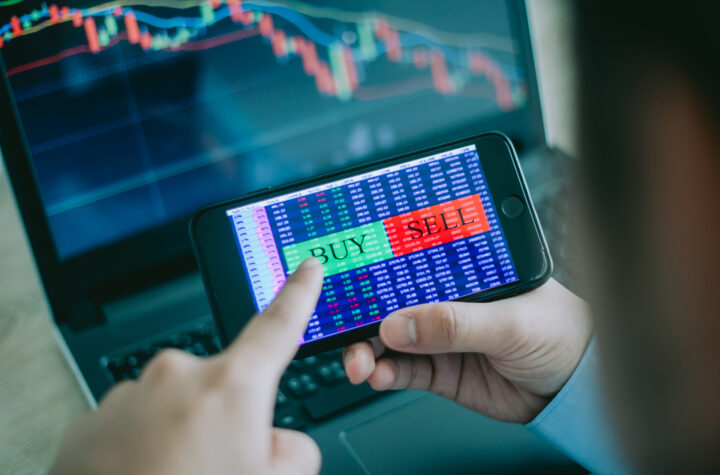In science, a catalyst is an additive that causes a chemical reaction to occur. A catalyst is introduced to a lifeless stew of chemicals and things begin to happen.
At Sick Economics we identify certain under the radar, little known biotech companies that are about to experience a catalyst in the investment sense of the word. These companies become our Sick Picks. These are companies that have labored for years to put all of the right elements into place, but just need one or two key positive events to bring their commercial prospects to life.
Six months ago we identified three such biotech startups and posted the recommendation for our readers. Today, all three companies have recently experienced just the catalysts that they need to jump start their way to strong profitability. Below find an update on some of our favorite small cap biotech stocks…
1. ADMA Biologics ($ADMA)
If there is one example of persistence in the face of setbacks it is Adma Biologics, inc. Adma invents, manufactures, and distributes blood plasma medicines for patients who suffer from Primary Immune Deficiency (PIDD), a debilitating genetic condition that leaves people with underdeveloped immune systems. The Adma management team has had positive phase III data for it’s lead candidate RI-002 for years. The team had solid scientific evidence that this novel infusion could help PIDD patients stay healthier, for longer. Yet manufacturing the new agent proved devilishly difficult.
Adma’s original plan was to merely innovate the science, and to let third party partners manufacture the product. This proved impossible as the third party partners let Adma down several times. So Adma bravely embarked on a commercial odyssey to become a fully integrated blood plasma company. Through a series of acrobatic fundraising and operational moves, Adma gambled that it could make RI-002 itself before running out of cash.
Now Adma’s day in the sun has finally arrived! Just the last week the FDA approved the novel PIDD treatment, and licensed Adma to manufacture it. RI-002 has become Asceniv. This approval win should, in turn, unlock debt funding that should allow Adma to commercialize it’s new product without diluting shareholders.
After many years of burning cash, it now looks like investors will be treated to a phenomena that was questionable just a few months ago; revenue! With 250,000 under treated PIDD patients across the United States alone, profit should soon follow…..
Technically, Sensus is not a biotech. Rather, Sensus invents, manufactures, and distributes radiation machines that target cancer. However, Senus displays a zeal for innovation that reflects the Biotech Ethos.
In recent years the tiny company has made steady progress in selling machines targeting two specific markets; skin cancer and keloid scars. Revenue and cash flow have grown like clockwork; debt is minimal. Sensus already had a good scenario unfolding.
But entrepreneurs are always looking for new businesses, so Sensus has just recently birthed a new innovation for a totally new market. At the end of February, Sensus announced that the new Sculptura IORT system had been cleared for sale by the FDA. This means that Sensus is now going beyond skin cancer; the Sculptura system targets breast cancer and other kinds of lethal cancer that require surgery.
This bold new product launch could open up massive new revenue frontiers for Sensus; most of the company’s current products produce $100,000-$200,000 in revenue per sale. The Sculptura would bring in around $1,000,000 per sale. For a company that only did $26 million in sales for 2018, this product launch could be a game changer.
Investors shouldn’t expect money to pour in over night; medical capital equipment in the seven figure range doesn’t just instantly fly off the shelf. Rather, trust must be built with key opinion leaders in the oncology community. This process takes time; it also takes a oceans of blood, sweat and tears. The Sensus management team has demonstrated tremendous grit before; hopefully the introduction of Sculptura will wind up being just one more conquest on the path to investor glory.
Speaking of “true grit!” The leadership team of Coherus Bioscience has been to hell and back on a biotech quest; to launch the world’s first biotech dedicated exclusively to the manufacture of biosimilar products. In many ways this would represent the purest definition of “biotechnology.” Today many of the world’s top selling medicines (Humira, Lantus, Lucentis, etc) are actually manufactured by living cells. The factory workers are specially programmed bacteria. This means that making generic versions of these drugs is a lot more complicated than it would be for old fashioned, “small molecule” drugs such as Lipitor or Metformin. Before, only legal barriers stopped chemists from selling generic versions of medicines. Now legal barriers AND technical barriers have allowed Big Pharma companies to build impressive moats around their billion dollar biotech babies.
After many years of every kind of set back imaginable, Coherus has finally crossed those moats and is ready to over run Big Pharma’s fortress. Coherus has finally achieved both approval and commercial launch for Udenyca, a biosimilar copy of Neulasta; Neulasta is one of the world’s most prevalent cancer drugs, bringing in billions and billions in revenue across the globe.
In addition to the formidable legal and technical challenges to achieving launch, there was always one giant question hanging over the entire enterprise; would this sell at all? Think of yourself sitting in an oncologist’s chair; while saving money on a Neulasta generic would certainly be appealing, would you want to be the first doc to recommend a copy cat to a very sick cancer patient? In other words, despite strong data, would Coherus be able to convince the medical community to take a leap of faith on something new?
Evidently, the answer is a resounding, “yes!” The company has just announced that it sold $38 million worth of Udenyca during its first quarter of commercial availability. In one, brief, press release, Coherus has shown the world that it’s decade of constant struggle was well worth it. The company may go from $0 in annual revenue to $200 million in revenue overnight.
This is only the beginning for Coherus. They have a pipeline filled with generic versions of some of the biggest selling drugs of all time. Competition will always be limited due to those high technical barriers. Doesn’t that sound like a recipe for profit?
One of the great joys of biotech investing is to find one sparkling diamond after going through truckloads of filthy coal. In this case, we didn’t find one; we found three!
Here at SickEconomics.com, we will continue to keep an eye out for our readers, and let you know when the next diamonds emerge.
DISCLOSURE: The Sick Economist Owns shares in $CHRS, $ADMA, and $SRTS









I would like to know more about stocks.